CALL FOR PAPERS
Family Life – Troubling Family Relations and Practices
June 14–16, 2023, Roskilde University, Denmark
Submission deadline December 1st
Hosted by Roskilde University in Denmark in 2023, the 11th biannual conference of the European Society on Family Relations (ESFR) invites family scholars across disciplines to exchange research and findings about contemporary challenges for families in Europe.
The aim of the conference is to facilitate the exchange of research-based insights about what we can learn from studying the troubles families face in their everyday practices and relationships considering current global upheavals. Studying the experiences of families creates knowledge and develops thinking that can provide insights into family life but also enables us to learn about important contemporary social and global challenges, including the global environmental crisis, the social and humanitarian crisis that arose due to COVID-19, and the ravages of war across the world. To gain insight into the meaning of these contemporary social and global issues, the conference will view them through the prism of troubles in everyday family life as experienced by living persons.
Although studying the everyday life of families calls for interdisciplinarity, some fields bridle at diverging from well-established ways of thinking and approaches. Since family life deserves to be examined from more angles than is possible via just one discipline, ESFR was founded to promote discussions across research traditions. Approaches and theories vary across the landscape of family studies, which is why engaging with other researchers may lead to conceptual and methodological challenges, but constructive collaboration and discussions across disciplines is a fruitful and intriguing endeavor that can foster greater development of thinking and research strategies, not to mention understanding.
Family relations and family practice are two concepts employed across disciplines when studying the troubles of family life and often aim to examine contemporary family life without becoming enmeshed in the normative blind spots of conventional research. Scholars have attempted to grasp the complexities of family relations and practices using frameworks derived from critique of zombie categories in family sociology or undertheorized concepts of clinical psychology. As families continuously seem to reconfigure and family forms constantly proliferate, the need for theoretical development and discussion remains important. In the context of European research on family relationships, this includes exploring the following overall, obviously interrelated, research themes: Policy & Intervention, Migration & Diversity, and Parenthood & Intergenerationality.
Policy & Intervention: Across Europe, welfare policies target families. The interventions and measures aimed at families are diverse and complex but often remain underinformed by family research. Yet, based on the underlying goal of tackling structural and systemic issues, e.g., inequality, there is a general tendency to call upon families to act. This approach varies across national contexts and cultures, as does its impact and meaning for individuals and families. Insights about this need to be shared.
Migration & Diversity: Migration, voluntary as well as forced, affects families and societies, resulting in the reconfiguration of family life and challenging traditional care practices. While ethnic diversity is a key aspect to consider when studying the emergence of new forms of relationality and intimacy, other aspects are important, too. The continual development of information and communication technologies, for example, also contributes to processes of migration and have profound consequences for family life and society. Indeed, more knowledge is sorely needed on this theme.
Parenthood & Intergenerationality: Parenthood and parenting practices emerge as an important focus of family studies. Changing gender norms and increased diversity provide the opportunity for historically unseen generational relationality. Questions about responsibility and risk management pertain to the positions of children, parents, and the elderly in families and in society in general. This calls for more research to rethink and develop theories and methods.
This call for papers is an invitation for scholars to contemplate how doing research across these themes is related to the everyday life of families. How are personal troubles, and social as well as global issues, connected to our research? How does the scientific study of families transcend and transform the practices and relationships of daily living? How are our collaborative efforts as researchers connected to the historic and institutional conditions for families and their members? How does (and should) our research matter to people and impact their lives? In short: how is research a part of the social situations it studies?
Since the founding of ESFR over two decades ago, themes of change and diversity have been a conference staple. Roskilde University’s strong tradition for problem-oriented, interdisciplinary, and critical scholarship makes it well-suited to host the 11th ESFR conference. We welcome contributions about family life from researchers from all disciplines aiming to learn not only from one another’s insights but also through differences and diversity to further develop the field of family studies.
PLEASE VISIT THE WEBSITE FOR UPDATED INFORMATION
on Keynotes, Submission Formats & Timeline

